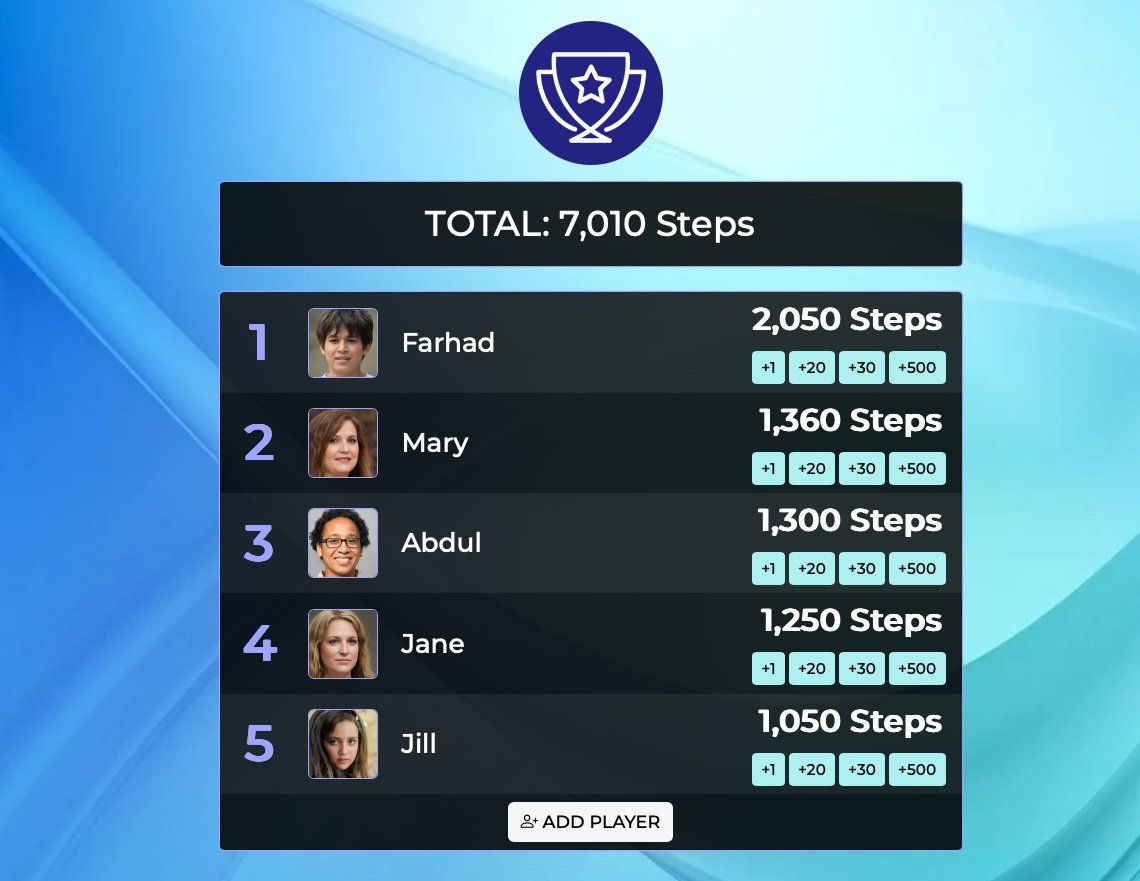In the world of mobile applications, achieving top performance can be a challenging endeavor. Engaging users and encouraging participation requires a deep understanding of their behavior during interactions. By focusing on session tracking, developers and marketers can gain insight into user habits, preferences, and engagement levels, ultimately providing a foundation for more informed decision-making.
Moreover, maintaining a balanced approach to variance control is crucial for ensuring fair competition. Participants should be given equal opportunities to showcase their skills, allowing for an authentic and enjoyable experience. Employing effective techniques to manage variance can also enhance user satisfaction, leading to higher retention rates and increased activity within the app.
By combining these elements, app creators can design engaging competitive experiences that elevate user involvement. As insights from session tracking are leveraged and variance is meticulously controlled, the potential for impactful outcomes expands significantly. This not only benefits user experience but also drives the overall success of the application in a crowded marketplace.
Understanding the Scoring System for Optimal Performance

To achieve desirable outcomes in competitions, grasping the scoring mechanism is vital. Each gaming activity typically incorporates unique elements that influence point accumulation. Here are some key concepts to keep in mind:
- Variance Control: Managing fluctuation in results enables players to anticipate their performance more accurately. Understanding how variance impacts your scores can help in formulating your approach.
- Risk Tiers: Different risk levels correspond to varying strategies. Assessing your appetite for risk can guide you in selecting activities best suited for your play style.
- Cashier Screen: This feature provides insights into your financial standing and helps you track spending. Regularly monitoring this screen is a good practice for maintaining responsible gambling habits.
- Mobile App: Utilizing a mobile application can enhance convenience and accessibility, allowing for easier tracking of your performance during competitions.
- Small Stakes: Starting with minimal investments can provide valuable experience without major financial exposure. This approach can benefit new players seeking to familiarize themselves with the scoring system.
- Session Tracking: Keeping an eye on your playing sessions assists in recognizing patterns and improving your methods. This can be instrumental in adjusting your strategies as necessary.
- Cash Sessions: Understanding when to cash out and when to reinvest is critical. Taking breaks to evaluate your position can prevent unnecessary losses.
- Independent Auditing: Transparency in the scoring process remains vital for trust. Regular audits ensure that scores are calculated fairly and accurately.
For those exploring different gaming options, the plinko casino experience offers unique scoring opportunities that align with these strategies. By focusing on these aspects, you position yourself for enhanced performance in various gaming environments.
Identifying Key Metrics That Influence Ranking outcomes
When it comes to maximizing one’s performance in competitive scenarios, understanding the various metrics that affect placement is fundamental. Participants should monitor their cash sessions, as the frequency and size of these interactions can have a significant impact on overall standing. Analyzing the duration and outcome of these sessions may reveal patterns that can lead to enhanced scoring.
The cashier screen serves as a pivotal point for tracking one’s financial activity. Regularly assessing deposits and withdrawals can provide insights into spending habits and progress, allowing participants to adjust strategies as needed. Responsible gambling practices encourage individuals to set limits and maintain awareness of their finances, ensuring that competition does not overshadow personal well-being.
Additionally, leveraging independent auditing systems can further enhance transparency and fairness in the rankings. Participants should look for platforms that utilize third-party assessments to validate the integrity of the scoring mechanisms. This not only builds trust but also encourages healthy competition based on genuine performance.
Implementing Time Management Techniques During Tournaments

Time management plays a pivotal role in achieving favorable outcomes during competitive events. By focusing on variance control, participants can optimize their performance without succumbing to unnecessary risks. Adopting a calculated approach helps maintain composure and enhances decision-making abilities.
Engaging in small stakes sessions allows for a less daunting experience, enabling players to refine their tactics. This approach prepares them for higher-stakes involvement, reducing pressure and anxiety. Additionally, utilizing the cashier screen strategically can aid in tracking currency spent and won, which promotes better budgeting of time and resources during play.
Allocating specific cash sessions within the competition can further help participants focus their efforts and prevent burnout. By setting time limits, players can better manage their energy and sharpen their concentration during critical moments. Structured timeframes allow for efficient breaks, ensuring sustained focus and minimizing fatigue.
Incorporating these principles into one’s routine can lead to improved performance and enjoyment in competitive scenarios. Time management, combined with strategic financial play, creates opportunities for success and growth in one’s gaming experience.
Leveraging Team Collaboration for Enhanced Results
Working together plays a significant role in maximizing achievements, especially in environments with small wagers and varied risk levels. By combining efforts, participants can share insights and strategies that lead to improved decision-making during cash sessions.
Effective communication among teammates allows for the exchange of valuable information and tactics that may not be accessible to individual players. This collaboration cultivates a supportive atmosphere where members can encourage one another and brainstorm innovative approaches to various challenges.
Pooling resources and knowledge also creates a more thorough understanding of different risk tiers, enabling teams to navigate their strategies with greater clarity. Diversity in thinking and experience enhances the collective capability to assess potential outcomes, allowing for a more balanced approach to responsible gambling.
Moreover, team dynamics can foster motivation and healthy competition, prompting each member to push their limits while adhering to predetermined responsible gaming practices. This camaraderie not only reinforces accountability but also contributes to an enriched experience, leading to superior results in the long run.
Q&A:
What are the key strategies for success in leaderboard contests?
Success in leaderboard contests often requires a combination of strategy, timing, and skill. First, participants should focus on understanding the contest rules and how points are awarded. This knowledge can help in choosing the best times to participate, particularly during peak times when multipliers might apply. Additionally, forming alliances or working with a team can enhance performance, as sharing insights and resources often leads to improved results. Regular practice and refining techniques based on past contests are also effective ways to improve rankings consistently.
Can you explain how multipliers work in leaderboard contests?
Multipliers in leaderboard contests can significantly boost your score. They typically apply during specific events or challenges where points earned are multiplied by a certain factor. For example, if a contest offers a 2x multiplier on points during a limited time period, participants should strategically engage in activities that yield high points during that window. Understanding when and how multipliers are applied allows competitors to maximize their scoring potential and climb the leaderboard more effectively.
What common mistakes should participants avoid when competing in leaderboard contests?
Participants in leaderboard contests should be wary of several common pitfalls. One major mistake is failing to thoroughly read the contest rules, which can lead to strategies that do not align with how points are awarded. Additionally, becoming overly focused on immediate results rather than long-term strategy can backfire; it’s often more beneficial to plan for sustained participation rather than sporadic bursts of activity. Lastly, neglecting to track progress relative to other competitors can result in missed opportunities to adjust tactics based on their performance.
How can teamwork enhance performance in leaderboard contests?
Teamwork can drastically enhance performance in leaderboard contests through collaboration and shared resources. By pooling knowledge and strategies, team members can identify the most effective approaches and share valuable insights that may have otherwise been missed. Additionally, working together allows for division of labor where individuals can focus on their strengths, whether that’s in quick play, strategy planning, or data analysis. Teams can also motivate each other, maintaining high enthusiasm and engagement throughout the contest duration.
What role does practice play in succeeding at leaderboard contests?
Practice is fundamental to succeeding in leaderboard contests. Regularly participating in practice sessions helps strengthen skills and refines strategies that can be leveraged during the actual competition. By practicing different techniques, participants can discover what works best for them and adapt quickly to the demands of the contest. Moreover, reviewing past performances and making adjustments based on experiences can lead to improved outcomes in future contests. Continuous improvement and honing of skills are key factors in achieving high scores in these competitive environments.